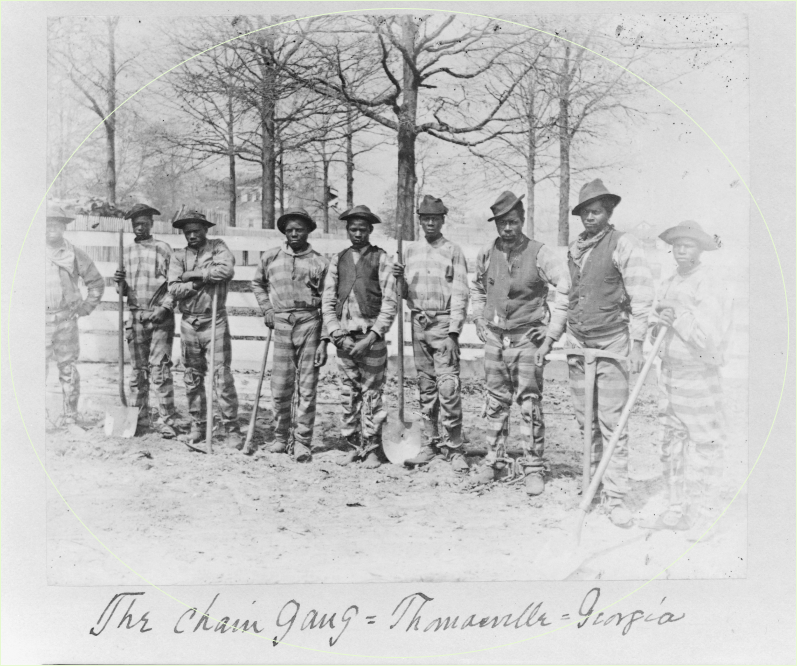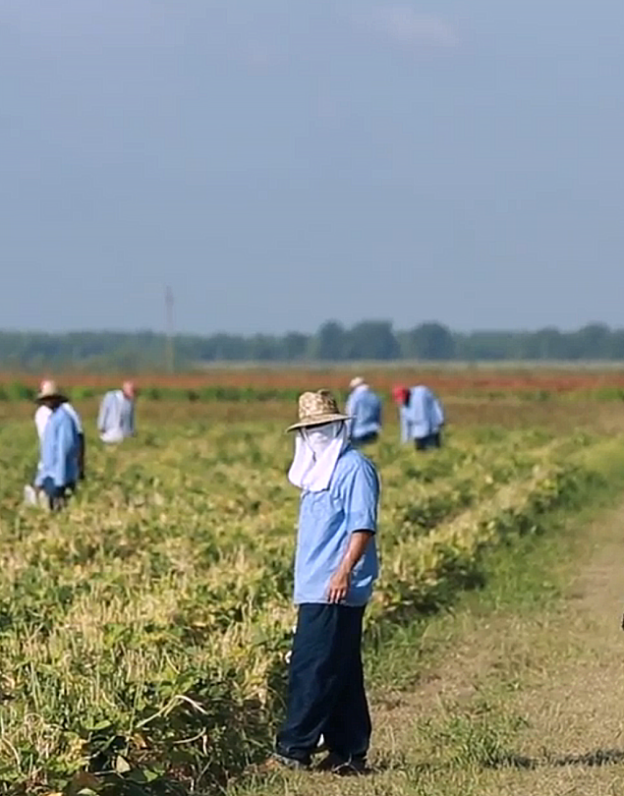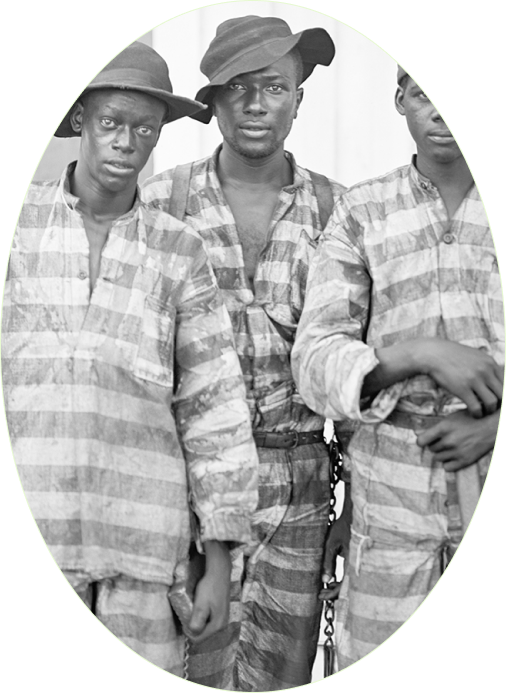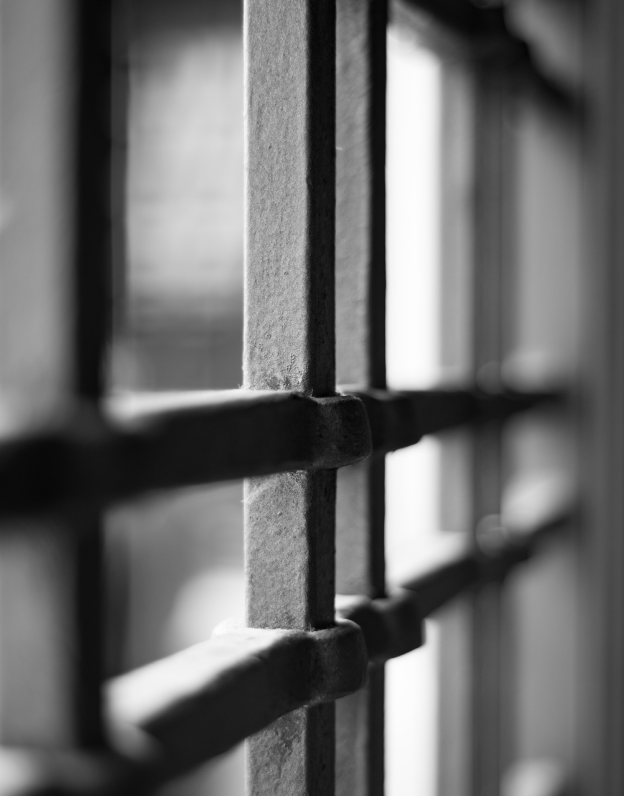Prison Labor:
1870s - Present Day
A chain gang in Thomasville, Georgia.

From the late 1870s through the mid-twentieth century, thousands of African-American men were arrested and forced to work off outrageous fines by serving as unpaid labor in subhuman conditions, where they were often subject to torture. [#26]
States made a profit leasing convicts to private businesses and provincial farmers. Inconsequential actions were often a pretense for arrest, with unemployment being made illegal in Virginia as part of Black Codes. (Black Codes were established to maintain and reinforce racial hierarchy.) Even being found on someone else’s land could result in a larceny charge. [#27]

If the accused could not pay the steep fine, they were imprisoned. Changing employers without permission, false pretense, and “selling cotton after sunset” were all arrestable offenses in rural Alabama by 1890. [#28]


A southern chain gang, circa 1903.
A growing number of prisons are run by private companies, and their investors have included private equity firms and the big banks. Inmates at private prisons often work for little to nothing, while investors turn a profit. This system creates a perverse incentive to increase detention. [#30]





